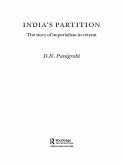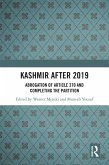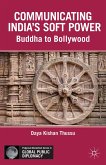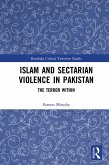This book explores what military strategy is and how it is interconnected with policy on one hand and military operations on the other. In the process, it traces the transformation of the notion of strategy from its original military moorings to a more policy-oriented and-influenced conception and elaborates upon a tripartite framework of policy, strategy and doctrine to think about, understand, and analyse the use of force. The book explores the politics of India-Pakistan conflict in order to root the study of Indian military strategy in the political sphere. It discusses three main issues that have ensured the persistence of conflict: incompatible national identities, Pakistan's congenital quest for parity with and compulsion to challenge India, and irreconcilable positions on the Kashmir issue. The book argues that India has invariably pursued limited political aims that did not threaten Pakistan's survival or form of government or regime in power albeit containing a counter offensive elements. It states that India employed the strategy of exhaustion during the Indian Army's campaigns in the 1947-48 conflict and 1965 war, which made way to strategy of annihilation during the 1971 war (East Pakistan), but after Pakistan's acquisition of nuclear weapons capability the strategy is back to exhaustion. The book highlights the importance of designing an overall military strategy for waging limited war and pursuing carefully calibrated political and military objectives by creatively combining the individual doctrines of the three services by establishing a Chief of Defence Staff system.
Bitte wählen Sie Ihr Anliegen aus.
Rechnungen
Retourenschein anfordern
Bestellstatus
Storno









